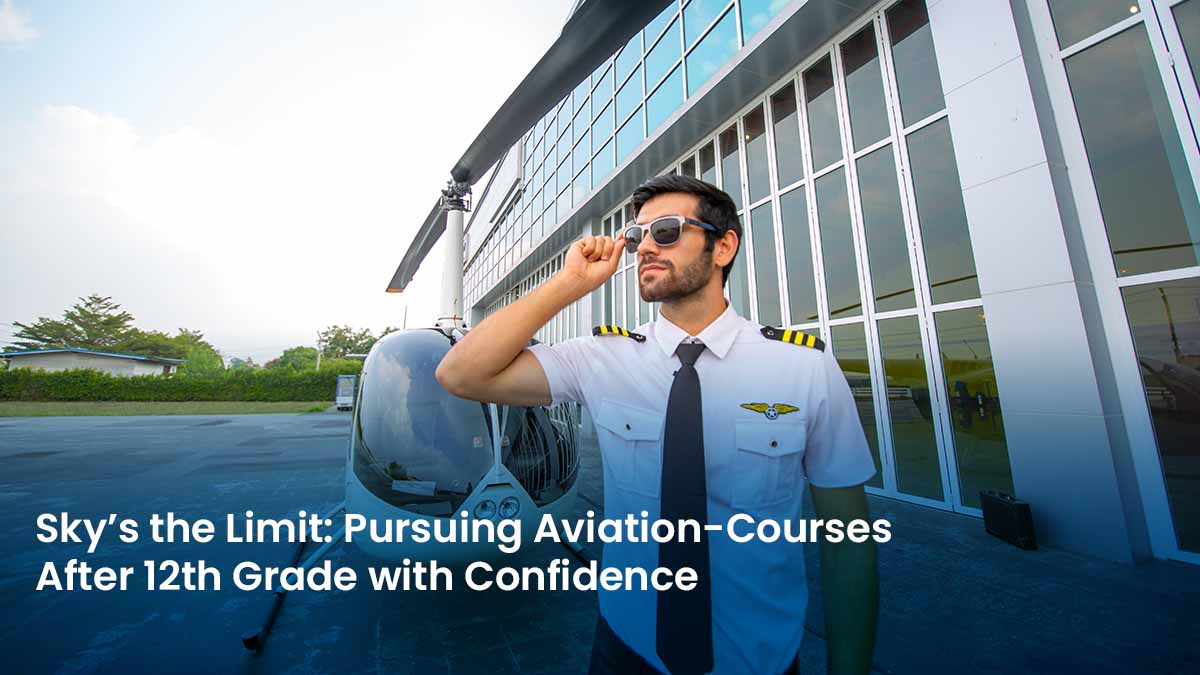- Discover top aviation programs available after completing 12th grade to kickstart your career in the aviation industry.
- Learn expert tips for choosing the right program to align with your passion and career goals.
- Explore how a structured aviation course can pave the way to exciting opportunities in the aviation field.
- Understand the prerequisites and skills required for various aviation roles, including flight attendants and pilots.
- Find out how aviation programs equip students with technical and interpersonal skills for a successful career.
Students in aviation programs can learn technical and people skills for a successful job. An aviation career also has many rewards–it can be a source of adventure, new ideas, and job opportunities. For 12th-grade students, proper course selection in aviation might be the first step towards a thrilling and rewarding career. Many possible post-graduate avenues are there–from pilots, and flight attendants, to employees working in the airport operations.
Popular Aviation Courses After 12th Grade
- Commercial Pilot Training
Master the art of flying commercial aircraft with comprehensive training in flight simulators and real-world scenarios. - Cabin Crew Training
Develop interpersonal skills and learn safety protocols to provide top-notch service and ensure passenger safety. - Airport Management
Learn how to oversee airport operations, from logistics to customer service, ensuring smooth daily operations. - Air Traffic Control Training
Train to manage air traffic efficiently, ensuring safe takeoffs, landings, and flight routes. - Aviation Hospitality
Combine hospitality management with aviation knowledge to create memorable passenger experiences.
Eligibility Criteria for Aviation Programs
To enroll in aviation courses after 12, students must meet basic eligibility requirements, which often include:
- A high school diploma or equivalent.
- Proficiency in English communication.
- Meeting medical standards for certain roles, such as pilot training or cabin crew positions.
- Passing entrance exams or aptitude tests, depending on the program and institution.
Skills That Enhance Your Aviation Career
Success in aviation requires more than technical expertise. Here are the key skills aspiring professionals should develop:
- Communication Skills. Clear and effective communication is vital for safety and teamwork.
- Problem-Solving Abilities. Quick thinking helps in managing challenges during flights.
- Customer Service Excellence. Creating positive passenger experiences is central to many aviation roles.
- Teamwork. Collaboration is key to seamless operations in the air and on the ground.
Expert Tips for Selecting the Right Aviation Course
- Identify Your Career Goals. Understand whether you’re inclined toward piloting, customer service, or management.
- Research Institutions. Look for colleges with accreditation and strong industry ties, like Eton College.
- Check Course Content. Ensure the curriculum matches your career aspirations.
- Explore Financial Aid. Look into scholarships, grants, and payment plans to manage tuition costs effectively.
Why Eton College Stands Out
Eton College provides a supportive environment for aspiring aviation professionals. With hands-on training, expert faculty, and industry connections, students gain the confidence and skills to thrive in aviation careers. Whether pursuing a flight attendant course or exploring airport management, Eton College equips you for success.
FAQs About Aviation Courses After 12th Grade
- What is the duration of aviation courses after 12?
Courses vary in length, ranging from a few months for cabin crew training to 1-3 years for degrees in airport management or pilot training. - Are there scholarships for aviation programs?
Many institutions offer scholarships based on merit or financial need. Research your options and apply early. - Can I pursue an aviation course if I didn’t study science in high school?
Yes! While science is required for certain programs like pilot training, many courses, such as cabin crew or aviation hospitality, are open to all streams. - What job opportunities are available after completing an aviation course?
Graduates can work as pilots, flight attendants, airport managers, air traffic controllers, and more. - How does Eton College prepare students for aviation careers?
Eton College combines practical training, theoretical knowledge, and industry exposure to prepare students for diverse roles in aviation.
Take Off Toward Your Aviation Dream
Embarking on aviation courses after 12 is a step toward an exhilarating and rewarding career. With options ranging from flight attendant courses to air traffic control training, the possibilities are endless. Choose the path that aligns with your passion, and let institutions like Eton College help you soar to new heights.




